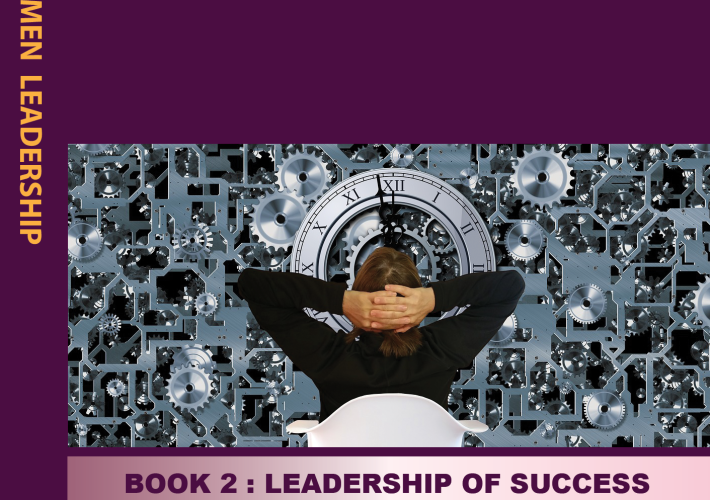Embracing God’s Transformative Power
Introduction
From the very moment of conception, each of us inherits a unique blend of strengths and weaknesses encoded in our genetic temperament. While it’s human nature to focus on our strengths, it’s crucial to recognize and address our weaknesses, for they can shape our journey in profound ways. In this exploration, we delve into the transformative power that God offers to make us dynamic individuals, capable of overcoming weaknesses and embracing a life of purpose.
Embracing Free Will: A Divine Challenge
God, in His infinite wisdom, bestowed upon humanity the gift of free will. This choice-driven challenge leads individuals to decide between succumbing to the weaknesses ingrained in their nature or seeking God’s strength to elevate their minds, hearts, and lives. The central question arises: Why do individuals often lean towards self-interest rather than embracing the boundless love of God? The answer lies in unraveling the instructions of the creator, understanding God’s plan for mankind, and discovering the path to rectify our collective sorrows.
The Rewards of Transformation
The rewards of aligning with God’s transformative power are profound. Individuals who embark on this journey experience improved focus, heightened energy levels, and an enhanced sense of well-being. This transformation is not a mere change; it’s a shift from a state of weakness to a temperament strengthened by the divine.
Navigating Self-Doubt: A Path to Growth
Self-doubt, a universal human experience, can either be a stumbling block or a catalyst for growth. While a healthy dose of self-doubt indicates pushing one’s limits, excessive doubt can paralyze progress. Understanding that doubt is a sign of stepping out of the comfort zone is crucial. It’s an opportunity for growth, a chance to become a dynamic person capable of facing challenges with resilience.
God’s guidance for Transformation
God’s desire is to transform our natural weaknesses into strengths, creating dynamic and effective believers in His spirit. The contrast between the weaknesses driven by brainpower and the strengths inherent in God’s spirit is stark. While the former leads to anger, fear, depression, and selfishness, the latter brings forth light, joy, love, and happiness.
Divine Temperament Transformation
Understanding the correlation between temperament weaknesses and strengths is key to this transformation:
- Choleric: From Manipulation to Power (to help others)
- Melancholic: From Liar to Truth
- Phlegmatic: From Insecure to Peace
- Sanguine: From Anxious to Love
- Supine: From Fear to Life
A person without God’s spirit operates under a weakness pattern, showcasing the critical influence of the will, mind, and heart. Emotions are shaped by the content placed in the mind, determined by the individual’s will. Disobeying God’s will and harboring thoughts contrary to it lead to emotions and actions that displease God.
The Origin of Sin: A Mental Journey
All sin originates in the mind, never spontaneous but nurtured through harboring negative thoughts and emotions. The mind, when exposed to filthy information, becomes a breeding ground for wickedness, opening doors to malevolent spirits that control emotions, thoughts, and actions. The word of God serves as a calming force, redirecting individuals towards righteousness.
Choosing Your Mental Diet
Man and woman have the power to choose their unconscious thoughts, deciding what thoughts and information to consume. The mind, in turn, influences emotions, highlighting the importance of focusing on positive, uplifting content. The questions to ponder:
- What’s bothering me within my control?
- Is what’s bothering me worth my attention and effort?
- What can I do to change what’s bothering me?
- How do I achieve success in my life, and what steps do I need to take?
- What obstacles do I face, and which ones can I truly influence?
- Do others have insights, skills, or abilities that I can acknowledge and benefit from?
- What makes me unique and valuable to the world?
- Why is my life important, and why should it continue?
Cultivating Positivity and Purpose
Honesty in answering these questions provides a stronger sense of uniqueness and the profound reasons for living. By keeping positive images in mind during challenging moments, individuals can transform their lives and, in turn, impact those around them positively.
God desires to transform individuals from a state of weakness to a temperament strengthened by His divine power. The transformative power of God is highlighted, with rewards including improved focus, heightened energy levels, and an enhanced sense of well-being. This article encourages individuals to embrace a positive thoughts, choosing thoughts and information that align with God’s will and contribute to emotional well-being.
The correlation between temperament weaknesses and strengths is explored, presenting a framework for understanding how God’s spirit can replace negative traits with positive ones.
Transforming lives through positive thinking during challenging moments is a powerful practice that can have a profound impact not only on individuals but also on those around them. Here are practical steps to cultivate positive images in your mind:
- Mindfulness and Awareness:
- Begin by cultivating mindfulness. Be aware of your thoughts and emotions, especially during challenging situations.
- Recognize negative thought patterns and consciously redirect your focus towards positive aspects.
- Gratitude Practice:
- Regularly practice gratitude by acknowledging and appreciating the positive aspects of your life.
- Keep a gratitude journal, noting down things you are thankful for, even in difficult times.
- Visualization Techniques:
- Use visualization to create positive mental images. Envision yourself overcoming challenges and achieving your goals.
- Picture scenarios where you respond to difficulties with resilience and a positive mindset.
- Affirmations:
- Develop positive affirmations that resonate with you. Repeat these affirmations regularly, especially during challenging moments.
- Affirm your strengths, resilience, and the positive outcomes you aspire to achieve.
- Surround Yourself with Positivity:
- Engage with positive influences, whether it’s uplifting literature, motivational speakers, or supportive friends and family.
- Create an environment that fosters positivity and minimizes exposure to negativity.
- Reflect on Past Successes:
- Remind yourself of past challenges you’ve overcome and successes you’ve achieved.
- Reflecting on your resilience in the face of adversity can boost confidence and positive thinking.
- Focus on Solutions:
- Shift your mindset from dwelling on problems to actively seeking solutions.
- Break down challenges into manageable steps, and focus on the actions you can take to improve the situation.
- Connect with Your Higher Purpose:
- Identify your values and what gives your life meaning and purpose.
- Connecting with a higher purpose can provide a source of inspiration and motivation during tough times.
- Practice Self-Compassion:
- Be kind to yourself. Understand that facing challenges is a part of life, and everyone experiences setbacks.
- Treat yourself with the same compassion and encouragement that you would offer a friend.
- Seek Professional Support:
- If challenges persist, consider seeking guidance from a mental health professional.
- Therapists can provide strategies to cope with stress, anxiety, and negative thought patterns.
Remember, transforming your life through positive thinking is an ongoing process that requires commitment and practice. Consistency in incorporating these strategies into your daily life can lead to a more positive mindset, influencing not only your own well-being but also positively impacting those around you.
By: Maria Pinto Barbosa PhD #DrBarbosa
Certified as School Board of Education / PHD-Doctor of Philosophy in Cristian Clinical Counseling
ACCEL-Holistic Life Coach / Founder-Director of ACCEL Educational Leadership
Specialized on Temperaments – Personalities
Pastor Christian Minister Clergy / Bachelor of Theology in Pastoral leadership and Certified EETAD Theology
Discover more from Dr Maria Barbosa
Subscribe to get the latest posts sent to your email.





